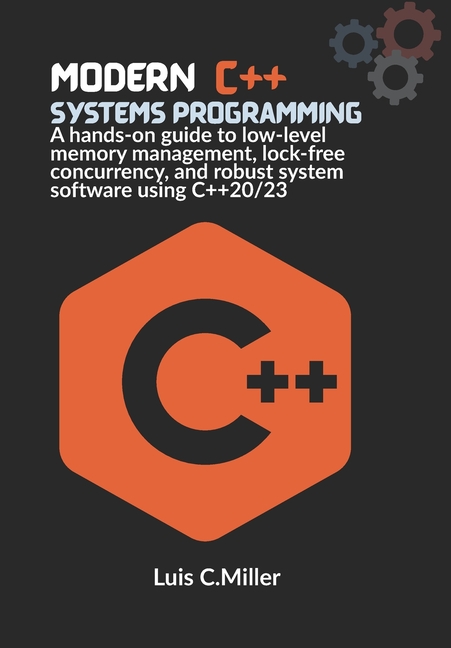Description
What You'll Learn
✔ Advanced Concurrency & Synchronization
- Master lock-free algorithms, fine-tuned spin-waiting, and wait-free data structures
- Leverage std:: latch, std:: barrier, and semaphores for clear, high-throughput coordination
- Build dynamic thread pools with work-stealing and NUMA-aware affinity for maximum CPU utilization
✔ Memory Management & Low-Level I/O
- Use memory-mapped I/O (MMIO) and Direct Device Access for minimal-latency hardware interfacing
- Harness cache-blocking, data-oriented layouts, and SIMD intrinsics for blazing performance
- Implement custom allocators, pool memory, and manage safe reclamation in lock-free systems
✔ Cross-Platform Abstractions & System Calls
- Wrap POSIX and Win32 syscalls in policy-based, concept-driven C++ interfaces
- Abstract file, network, and serial devices with RAII, error codes, and std:: expected for robust APIs
- Craft portable packages with CMake, CPack, DEB/RPM, and multi-stage Docker or Podman images
✔ Profiling, Testing & Observability
- Integrate AddressSanitizer, ThreadSanitizer, and static analyzers into your CI pipeline
- Profile CPU hot spots with perf and Intel VTune; diagnose memory with Massif and VTune's Memory Analysis
- Add logging, metrics, and tracing with OpenTelemetry; design live-reload daemons and zero-downtime upgrades
✔ Performance Engineering & Reliability
- Set up performance budgets, automated benchmarks (Google Benchmark), and regression guards
- Optimize branch prediction, minimize false sharing, and tune prefetch hints
- Build resilient services with health checks, backpressure, circuit breakers, and shared-nothing actors
✔ CI/CD, Infrastructure as Code & Deployment
- Automate cross-compilation, testing, and packaging for multiple architectures in GitHub Actions or Azure Pipelines
- Define Infrastructure as Code with Terraform, Bicep, and container orchestration for cloud-native rollouts
- Enforce ABI stability with versioned SONAMEs, PImpl idiom, and compliance checks in your release workflow
Who This Book Is For
- Systems engineers building high-performance servers, network services, or device drivers in C++
- Performance architects who need to squeeze every cycle and byte from modern multi-core hardware
- DevOps and platform teams automating cross-platform CI/CD, containerization, and observability for C++ workloads
- Software leads standardizing concurrency, memory safety, and upgrade practices across critical infrastructure
With ready-to-reuse templates, production-tested patterns, and hands-on examples, Modern C++ Systems Programming is the essential guide to crafting future-proof, high-velocity, and dependable C++ applications where every microsecond and megabyte counts.
Product Details
- Jul 13, 2025 Pub Date:
- 9798292305958 ISBN-10:
- 9798292305958 ISBN-13:
- English Language




